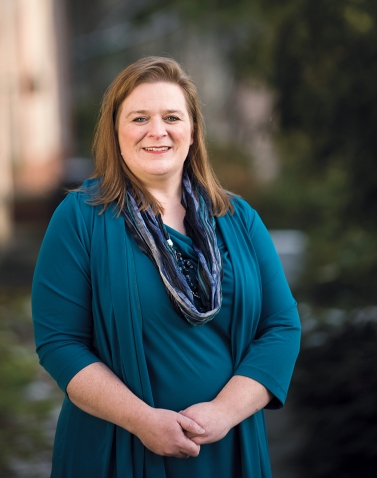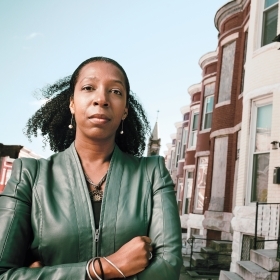Photo by Richard Howard
Markella “Kelly” Rutherford, associate professor of sociology, understands why so many Wellesley students were delighted to learn about the College’s new interdisciplinary minor in comparative race and ethnicity (CRE). Discussions about the CRE minor, which will examine how people experience racial and ethnic differences around the world, began in spring 2014, after repeated requests from students for more courses in this subject area.
“We face pressing questions today of how to protect rights, freedom, and solidarity in our pluralistic national setting, but in order to address these questions properly, we must understand that categories like race, ethnicity, nationality, gender, and class intersect in overlapping and mutually constituted systems of domination both globally and locally,” says Rutherford, who serves as an advisor for the new minor. “Understanding how racial categorizations shape our everyday reality is a matter of engaging with questions of how power operates and what uses power makes of race/ethnicity.”
Students will be able to explore those questions and forge connections across disciplines in 18 departments, including English, Africana studies, anthropology, and sociology, which hosts the new minor.
Rutherford views her work with the CRE minor as a natural outgrowth of her longtime interest in the relationship between individual autonomy and collective authority. “During my graduate studies, I began thinking about the power of rites of passage to communicate cultural messages about this relationship,” she says. “Since then, I’ve been thinking through a series of life course transitions that serve as opportunities to mark the importance of autonomy, authority, and the balance between them.”
In 2011, she published the book Adult Supervision Required: Private Freedom and Public Constraints for Parents and Children, which considers the contradictory ways in which contemporary American culture has imagined individual autonomy for parents and children. Her current research continues to examine parenting practices such as “free-range” parenting, a movement that emphasizes the importance of allowing children to develop independence and freedom, even if that means accepting a reasonable amount of risk.
Race and ethnicity affect how much parents’ rights and autonomy are respected by outside authorities, she explains. “Increasingly, public norms for ‘good parenting’ expect constant, intensive monitoring of children, but this cultural parenting norm is mostly based in white, suburban, middle-class practices. When we evaluate parenting practices, we must consider what looks ‘normal’ from different perspectives. We also need to take into account how class, race, and gender affect public perceptions of who can be a ‘good’ parent.”






We ask that those who engage in Wellesley magazine's online community act with honesty, integrity, and respect. (Remember the honor code, alums?) We reserve the right to remove comments by impersonators or comments that are not civil and relevant to the subject at hand. By posting here, you are permitting Wellesley magazine to edit and republish your comment in all media. Please remember that all posts are public.